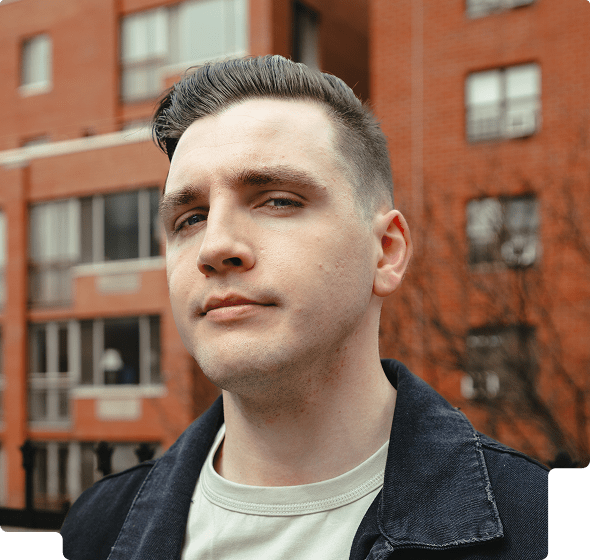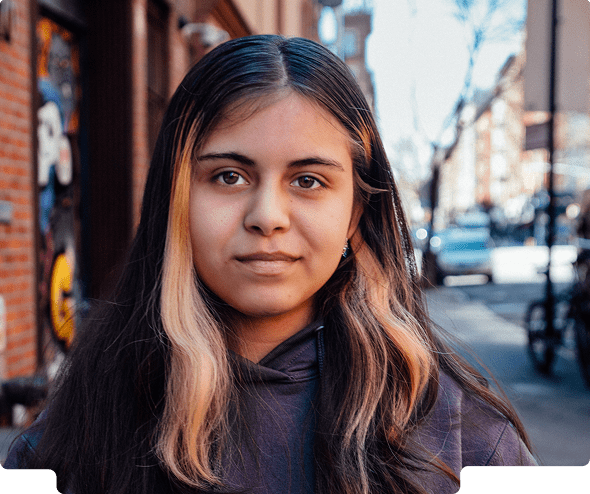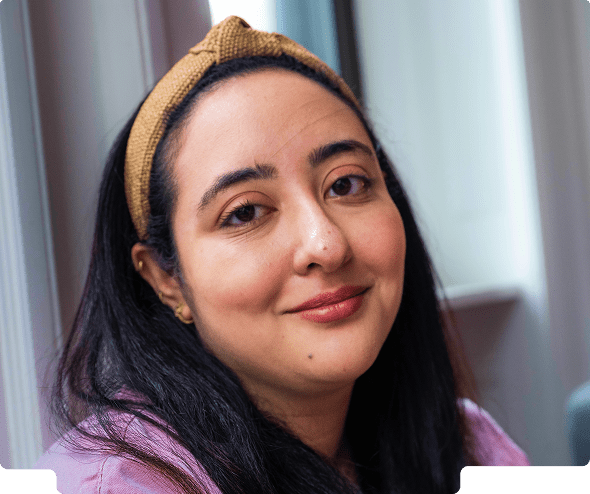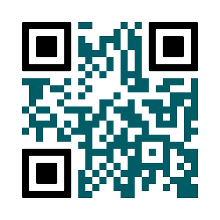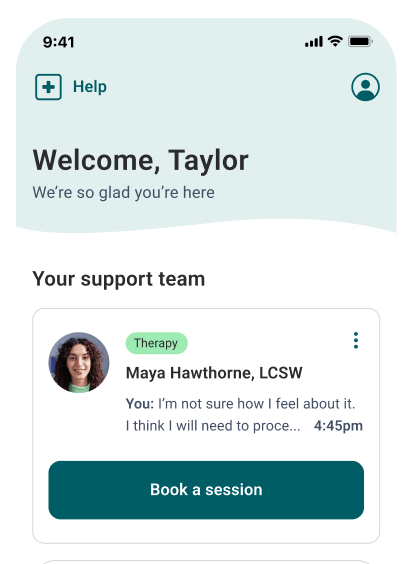Obsessive compulsive disorder (OCD) test
Is it just a phase or something more? Take our short online OCD test to find out if you're living with obsessive compulsive disorder (OCD).

Youarenotalone
It's common for people to find themselves caught up in worry and fixation, but for the 2.2 million adults in the U.S. experiencing OCD, those unwanted feelings and other OCD symptoms become amplified and can seem to take over in their daily lives. Our obsessive compulsive disorder test will help you better understand what you’re experiencing.
Take control of OCD
When you're caught up in obsessive thought or are up against compulsive or ritualistic behavior, things may feel like they'll never change. But you don't have to battle compulsive behavior alone. Our network has thousands of licensed therapists and prescribers experienced in treating OCD. Taking this obsessive compulsive disorder test is the first step to understanding your mental health. From there, you can tap into our network. We'll match you with a licensed mental health care provider to help you work through unpleasant thoughts and achieve your goals — all from the privacy of your device.
*Copays represented are averages. Members in high-deductible health plans must satisfy the deductible before copays apply. Check your policy to confirm coverage details.
Your copay could
be as low as
Average copay per session for covered members is
Enter your insurance details to verify your coverage today.
More than 60,000
5-star reviews
Read why people love using Talkspace.
See all reviews
Any questions?
Find trust-worthy answers on all things mental health at Talkspace.

What are the warning signs of OCD?
OCD involves a pattern of unwanted thoughts (obsessions) followed by repetitive behaviors (compulsions). These thoughts and corresponding behaviors may take up a lot of time and energy, and interfere with your ability to carry out daily activities. OCD symptoms often center around certain themes such as cleanliness, a need for order or security, fear of losing control, or anxiety related to engaging in abnormal or offensive behavior.
Examples of compulsive behaviors include excessive hand washing that interferes with skin integrity, repeatedly checking doors/lights/living spaces in a manner that interferes with an ability to leave or move forward, counting/praying repeatedly.
How do doctors test for OCD?
Doctors and mental health professionals test for OCD by talking with you about your symptoms, determining if you have obsessions and compulsive behaviors, and by evaluating if these thoughts and behaviors interfere with your functioning. Your Talkspace provider will conduct an OCD screening to provide a full diagnosis using the criteria in the American Psychiatric Association's Diagnostic and Statistical Manual of Mental Disorders or DSM-5.
How do you get clinically diagnosed for OCD?
While online OCD tests act as a powerful first step to gaining clarity and exploring effective treatment options, only a skilled clinician can accurately diagnose OCD. Mental health professionals often use a structured interview which involves asking standard questions to assess if your symptoms are consistent with OCD. These questions determine the severity, nature, and duration of your symptoms.
How do Talkspace providers treat OCD?
OCD is most commonly treated with a type of Cognitive Behavioral Therapy (CBT) called Exposure and Response Prevention (ERP) and medication. The medication most commonly used to treat OCD is called serotonin reuptake inhibitors, or SRIs. Your online therapist will use CBT/ERP techniques and talk with you about being seen by a medical professional to determine if medication is right for you.
If you or a loved one is struggling with OCD symptoms, it’s important to reach out to a mental health professional for assessment, diagnosis, and treatment. Our licensed therapists are here to listen and help you develop coping strategies, while our online psychiatry providers can prescribe the right medication (if appropriate) to treat OCD. Plus, Talkspace offers online therapy and psychiatry plans that take insurance, making OCD treatment more accessible and affordable than ever before.
What is OCD commonly mistaken for?
Obsessive compulsive disorder is a mental health condition characterized by persistent, intrusive thoughts or images (obsessions). These thoughts cause someone with OCD to carry out repetitive behaviors, or rituals (compulsions), in an attempt to neutralize the obsessive thoughts. The compulsions only provide temporary relief, if any, which creates a constant cycle of obsessions and compulsions.
Research suggests that there are a number of obsessive-compulsive related disorders that share similarities with OCD:
- Excoriation (skin picking) disorder
- Trichotillomania (hair-pulling disorder)
- Body dysmorphic disorder (BDD)
- Hoarding disorder
- OCD-induced by a medication or due to another medical condition
- Obsessive compulsive personality disorder
Many people with OCD may also experience major depressive disorder or anxiety disorder symptoms.
If you're concerned about compulsive behavior or find yourself asking, “do I have OCD,” meet with a licensed mental health professional to receive an accurate diagnosis.
What causes OCD?
Despite significant research and various theories, the definitive cause of OCD is not fully known. Potential causes of OCD can include:
- Comorbid mental health conditions like an anxiety disorder or depression
- Imbalanced brain chemistry and/or a change in brain function
- Environmental factors that cause extreme distress or trauma
- Genetics or family history of OCD
- A specific type of streptococcal infection
- Alcohol or drug abuse
Anything that causes stress, anxiety, or an intense emotional reaction has the potential to be a trigger for OCD. Symptoms may continue to impact, intensify, and worsen daily life over the years without effective treatment.
What are the different types of OCD?
When someone has OCD, they’re consumed with intrusive, unwanted thoughts and compulsive behavior that can interfere with daily life. While OCD may look and feel different for individual people, a few common obsessions and known types of OCD include:
- Cleaning/contamination OCD
- Order/symmetry or counting compulsions OCD
- Harm OCD
- Hoarding OCD
- Relationship OCD
- Responsibility OCD
- Retroactive Jealousy OCD
- Just Right OCD
- ‘Pure O’ OCD
- Existential OCD
- Pedophilia OCD
- Sexual Orientation OCD

